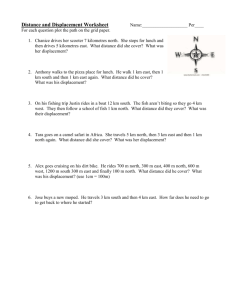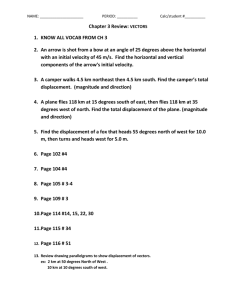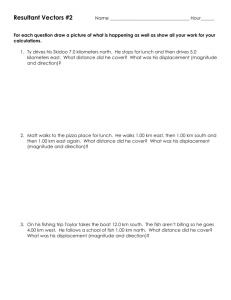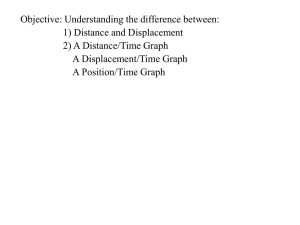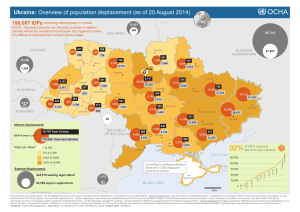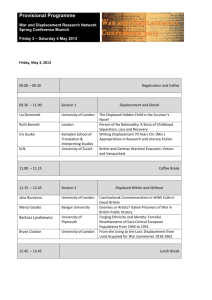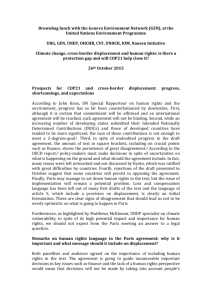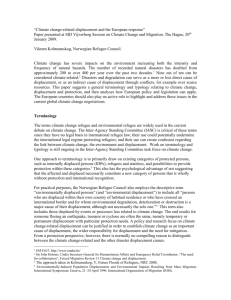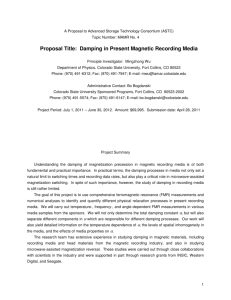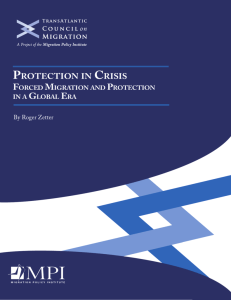Forthcoming September 2008
advertisement
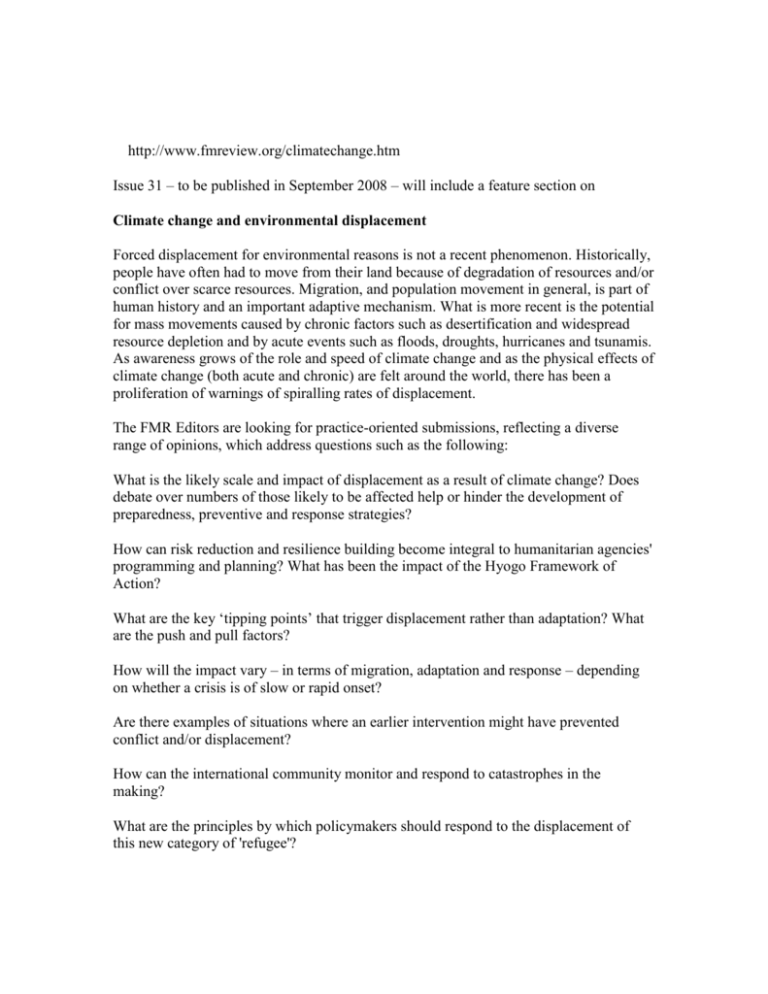
http://www.fmreview.org/climatechange.htm Issue 31 – to be published in September 2008 – will include a feature section on Climate change and environmental displacement Forced displacement for environmental reasons is not a recent phenomenon. Historically, people have often had to move from their land because of degradation of resources and/or conflict over scarce resources. Migration, and population movement in general, is part of human history and an important adaptive mechanism. What is more recent is the potential for mass movements caused by chronic factors such as desertification and widespread resource depletion and by acute events such as floods, droughts, hurricanes and tsunamis. As awareness grows of the role and speed of climate change and as the physical effects of climate change (both acute and chronic) are felt around the world, there has been a proliferation of warnings of spiralling rates of displacement. The FMR Editors are looking for practice-oriented submissions, reflecting a diverse range of opinions, which address questions such as the following: What is the likely scale and impact of displacement as a result of climate change? Does debate over numbers of those likely to be affected help or hinder the development of preparedness, preventive and response strategies? How can risk reduction and resilience building become integral to humanitarian agencies' programming and planning? What has been the impact of the Hyogo Framework of Action? What are the key ‘tipping points’ that trigger displacement rather than adaptation? What are the push and pull factors? How will the impact vary – in terms of migration, adaptation and response – depending on whether a crisis is of slow or rapid onset? Are there examples of situations where an earlier intervention might have prevented conflict and/or displacement? How can the international community monitor and respond to catastrophes in the making? What are the principles by which policymakers should respond to the displacement of this new category of 'refugee'? Will the definition of ‘refugee’, the concept of protection and notions of national sovereignty need to change? Should there be a new Protocol to include this new category of displacement? Should UNHCR be given responsibility for this new type of 'refugee' or is there a need for a new organisation with a specific mandate? Who should be responsible for ensuring the protection and resettlement of those displaced by climate change? Who should pay? Are there replicable examples of resilience, adaptation and coping strategies? Can governments and the international community help local communities resolve conflicts over natural resources and boost adaptive capacities? What is the role of the media in generating awareness and educating people – and, conversely, in contributing to fears about mass migration? How can we promote better communication and collaboration between communities of ecologists, demographers, sociologists, economists and relief and development workers? Deadline for final submission of articles: 1st of April 2008. Maximum length: 2,500 words. Further information for FMR authors is at: www.fmreview.org/writing.htm. Please write to us as soon as possible if you are interested in contributing or have suggestions of colleagues who may be able to. We are keen to reflect the experiences and knowledge of communities affected by environmentally-induced displacement. Please consider writing for us even if you have not written an article before. We would be happy to work with you to develop an article about your experience. If you could help disseminate information about this issue – and/or copies when printed – we would very much like to hear from you. We encourage readers to send us written contributions on any aspect of contemporary forced migration. Each issue of FMR has a feature theme but at least a third of each issue is set aside for 'non-theme' articles. Please contact the Editors at fmr@qeh.ox.ac.uk FMR is totally dependent on grant income. We need £70,000 / $137,000 / €94,000 to cover the design, translation, print and distribution costs of this issue in English, French, Arabic and Spanish. We would be very grateful for any advice you can give as to which agencies you think we could approach for a partial contribution towards these costs.
